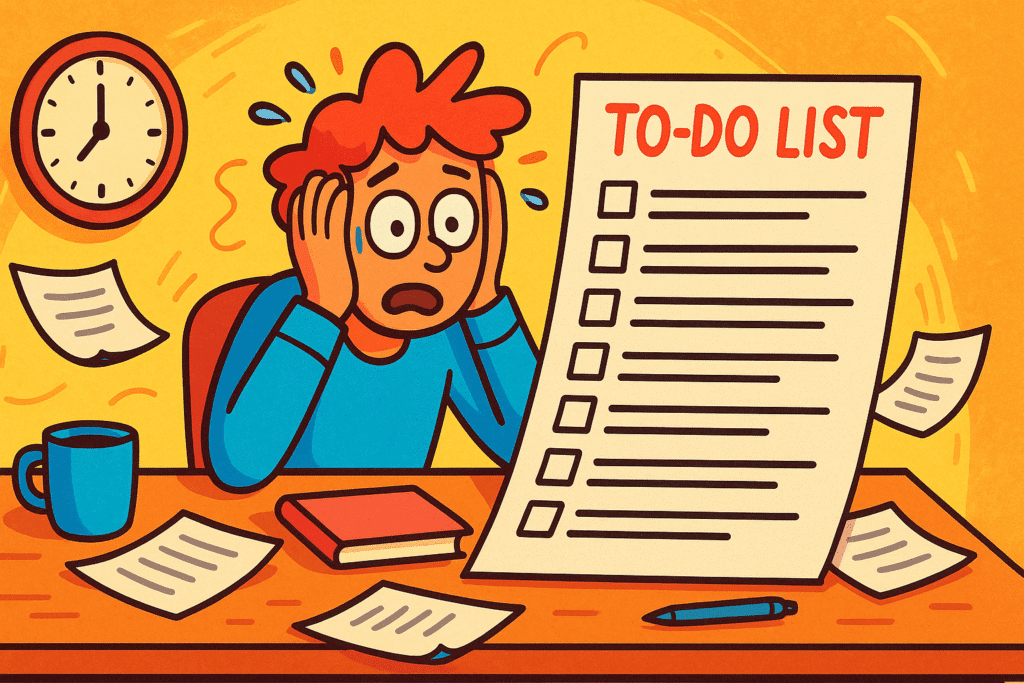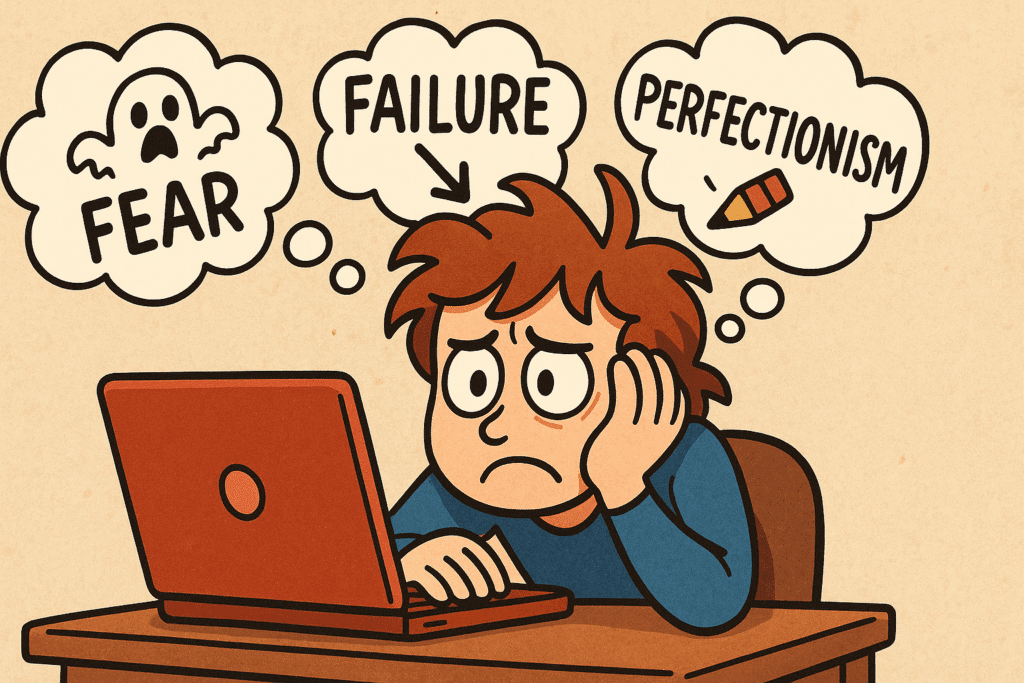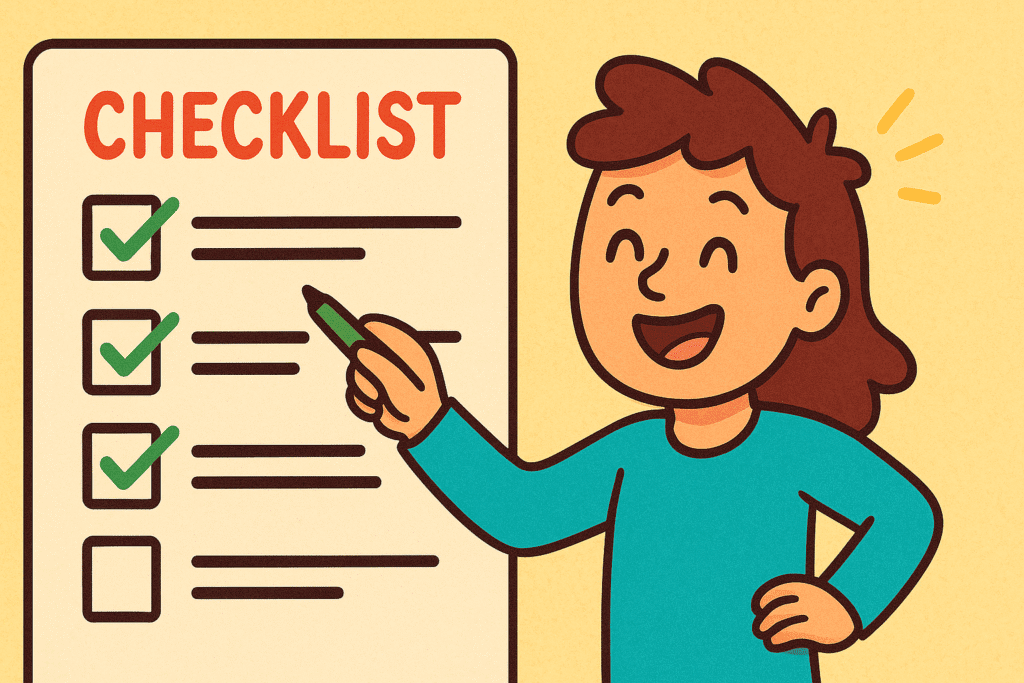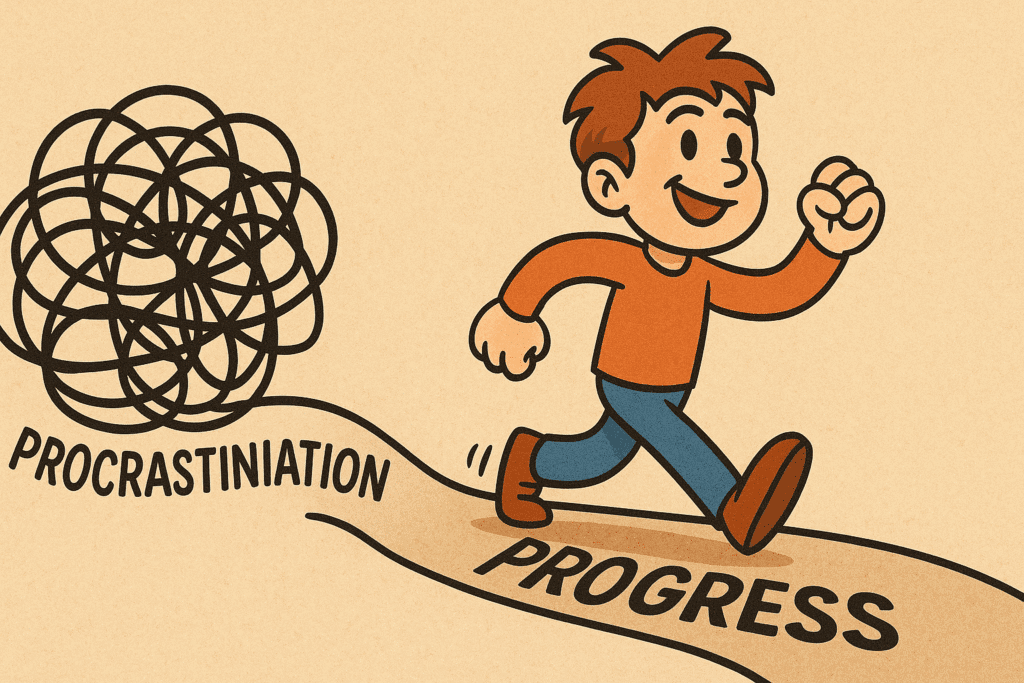Introduction

You’ve been staring at that task for hours, telling yourself you’ll get to it “soon,” but somehow, it never happens. It’s easy to blame laziness. After all, that’s what everyone says, right? “Just get up and do it!”
But here’s the truth: procrastination isn’t about being lazy. It’s about something deeper, something that most people overlook. The real reason you procrastinate is rooted in your brain’s survival instincts, your fears, and your need for control.
In this post, we’ll dig into the real cause of procrastination, why beating yourself up won’t help, and what you can do to break the cycle and finally get things done — without guilt.
Procrastination Isn’t Laziness — It’s Fear

Let’s get this out of the way: procrastination isn’t a sign of weakness or laziness. In fact, it’s often the opposite. The truth is, procrastination is often rooted in a fear of failure, fear of success, or even fear of being judged.
Here’s how it works: Your brain is constantly working to protect you from emotional pain. When you think about doing something important — whether it’s finishing a big project or even just tackling your email inbox — your brain associates it with stress, judgment, and potential failure. The result? You subconsciously push it off to avoid those uncomfortable feelings.
It’s not about being lazy; it’s about avoiding discomfort. But here’s the kicker: the longer you put something off, the more your anxiety grows, and the more stuck you feel.
This fear-based behavior is a defense mechanism. Your brain is trying to keep you “safe” by avoiding tasks that could trigger negative emotions. But ironically, this avoidance only makes everything worse in the long run.
The Perfectionism Trap — Why “Perfect” is the Enemy of Done
If you’re waiting for the “perfect” time or the “perfect” conditions to get started, you’re feeding into a common procrastination trap: perfectionism.
Perfectionism isn’t just about wanting things to be flawless — it’s about the fear of making mistakes, looking foolish, or being judged. This makes procrastination feel safe. After all, if you don’t start, you can’t fail, right?
The problem? Waiting for everything to be perfect keeps you stuck in a loop. You endlessly tweak, overthink, and delay taking action because you’re scared it won’t be good enough. This constant over-analysis kills momentum and ultimately leads to inaction.
Here’s the brutal truth: perfectionism is just an excuse. It’s your brain’s way of trying to control the outcome, and it keeps you from doing what you actually need to do.
Instead of striving for perfection, aim for progress. Embrace the idea that mistakes are part of the learning process and that done is better than perfect. This shift will free you from the endless cycle of procrastination and start moving you toward results.
Task Overwhelm — How to Stop Drowning in Your To-Do List

We’ve all been there. You look at your to-do list and feel paralyzed by the sheer number of things you need to do. It’s easy to think, “I’ll start later,” because the task seems so huge, and tackling it feels like climbing a mountain.
Here’s the catch: When tasks feel too big, they trigger a mental shutdown. The brain sees them as an overwhelming challenge and decides it’s easier to avoid them than to face them head-on. Procrastination, again, becomes the brain’s way of coping with this stress.
But this isn’t about laziness. It’s about the cognitive overload you experience when you see a massive task ahead of you. When you don’t break things down into smaller, more manageable chunks, your brain perceives the task as too daunting, and you avoid it to protect yourself.
So, how do you beat this? Start by breaking your tasks down into smaller, bite-sized pieces. Instead of focusing on “write 1,000 words for the blog,” focus on “write the intro,” or “research the first section.” Each step you complete will build momentum, and suddenly, that massive task doesn’t feel so overwhelming anymore.
Lack of Clarity — Why Not Knowing Where to Start Keeps You Stuck
Have you ever sat down to work on something, only to freeze because you didn’t know exactly where to begin? It’s a common scenario, and it’s another major contributor to procrastination.
When you don’t have a clear roadmap or actionable steps in front of you, your brain doesn’t know how to prioritize or what to focus on. This confusion leads to decision fatigue, and when the path isn’t clear, your brain resorts to avoidance.
The funny thing is, the more you procrastinate, the more confused you get — creating a vicious cycle. The solution? Break down the task and clarify your next move. Start with one clear action. It could be as simple as gathering materials, writing a single sentence, or making a list of priorities.
When you create clarity around what’s next, it becomes easier to dive in without hesitation. You don’t need to know everything at once — just focus on the first step, and momentum will follow.
Motivation Is Overrated — Why You Can’t Wait for It to Show Up
Here’s the myth: you’re only supposed to start when you feel “motivated.” It sounds good in theory, but motivation is a fickle thing — it comes and goes without warning. And relying on it to overcome procrastination is like waiting for a train that never arrives.
The problem is, motivation doesn’t lead to action. Action leads to motivation. You won’t feel inspired or ready to start if you’re waiting for that perfect moment. In fact, most people who struggle with procrastination are waiting for motivation to strike, but by the time it shows up, they’ve already talked themselves out of it.
Instead of waiting to feel motivated, start doing. Take one small action, and momentum will follow. Whether it’s opening the document, typing a single line, or making a phone call, once you begin, you’ll find that motivation starts to build on its own.
The truth is, you don’t need motivation to start. You need discipline. And once you start, motivation will catch up to you.
Emotional Regulation — Why Your Emotions Are the Real Culprit

Procrastination isn’t just about tasks; it’s about feelings. Most of the time, the things you’re avoiding make you feel something uncomfortable — stress, anxiety, frustration, or even boredom. The more these feelings build up, the more likely you are to avoid the task altogether.
When you procrastinate, you’re essentially trying to escape an emotional reaction. Whether it’s the fear of failure, the pressure of expectations, or the discomfort of doing something you don’t enjoy, your brain finds avoidance a much easier solution.
But here’s the catch: by ignoring these feelings and pushing the task away, you’re not actually solving anything — you’re just putting off the inevitable. In fact, the longer you avoid it, the more intense these emotions can become.
To break this cycle, you need to learn emotional regulation. Instead of running from the uncomfortable emotions, face them head-on. Acknowledge your anxiety, frustration, or fear, and realize that these feelings are temporary. Accept them, but don’t let them control your actions. The more you face uncomfortable emotions and work through them, the easier it becomes to tackle the task.
Conclusion: Stop Waiting for the Perfect Moment — Start Now
The real reason you procrastinate is not laziness, not lack of motivation, and definitely not because you’re incapable. It’s a mix of fear, perfectionism, overwhelm, confusion, and unchecked emotions. But here’s the powerful truth: you have the ability to break free from it.
Waiting for the perfect moment, the perfect mood, or the perfect conditions to get started will keep you stuck in an endless loop. The key to overcoming procrastination is to take small, deliberate actions. You don’t need motivation to start — you need discipline, clarity, and the willingness to push through discomfort.
So, stop waiting. Start now. Whether it’s breaking a task into smaller steps, embracing imperfection, or facing your fears head-on — the longer you wait, the harder it will get. Take one step today. Your future self will thank you for it.
FAQs
Why do I always procrastinate, even though I know it’s bad for me?
Procrastination isn’t about laziness; it’s often rooted in emotional responses like fear of failure, overwhelm, or perfectionism. The longer you avoid a task, the more anxiety builds up. Addressing the underlying emotions, breaking tasks into smaller pieces, and taking the first step can help you start overcoming procrastination.
How can I stop procrastinating if I have too many things to do?
When you’re overwhelmed with tasks, your brain shuts down. The key is to break everything down into smaller, manageable tasks. Focus on one thing at a time, and celebrate small wins. You’ll be surprised how much momentum you build when you approach tasks step by step.
How can I overcome procrastination without waiting for motivation?
Waiting for motivation is a trap. Motivation comes after you start taking action. Begin with small, simple steps, even if you don’t feel inspired. The act of starting builds momentum, and before you know it, motivation will follow.
Can perfectionism really be the cause of my procrastination?
Yes! Perfectionism is a huge driver of procrastination. If you’re waiting for everything to be flawless before starting, you’ll never make progress. Embrace imperfection, and focus on progress instead of perfection. Done is better than perfect.
How do I manage emotions when I’m overwhelmed with procrastination?
Managing your emotions is key. Instead of avoiding the discomfort, face it head-on. Acknowledge your feelings — whether they’re anxiety, stress, or fear — and remind yourself that they’re temporary. By accepting and working through your emotions, you can stop them from controlling your actions.
